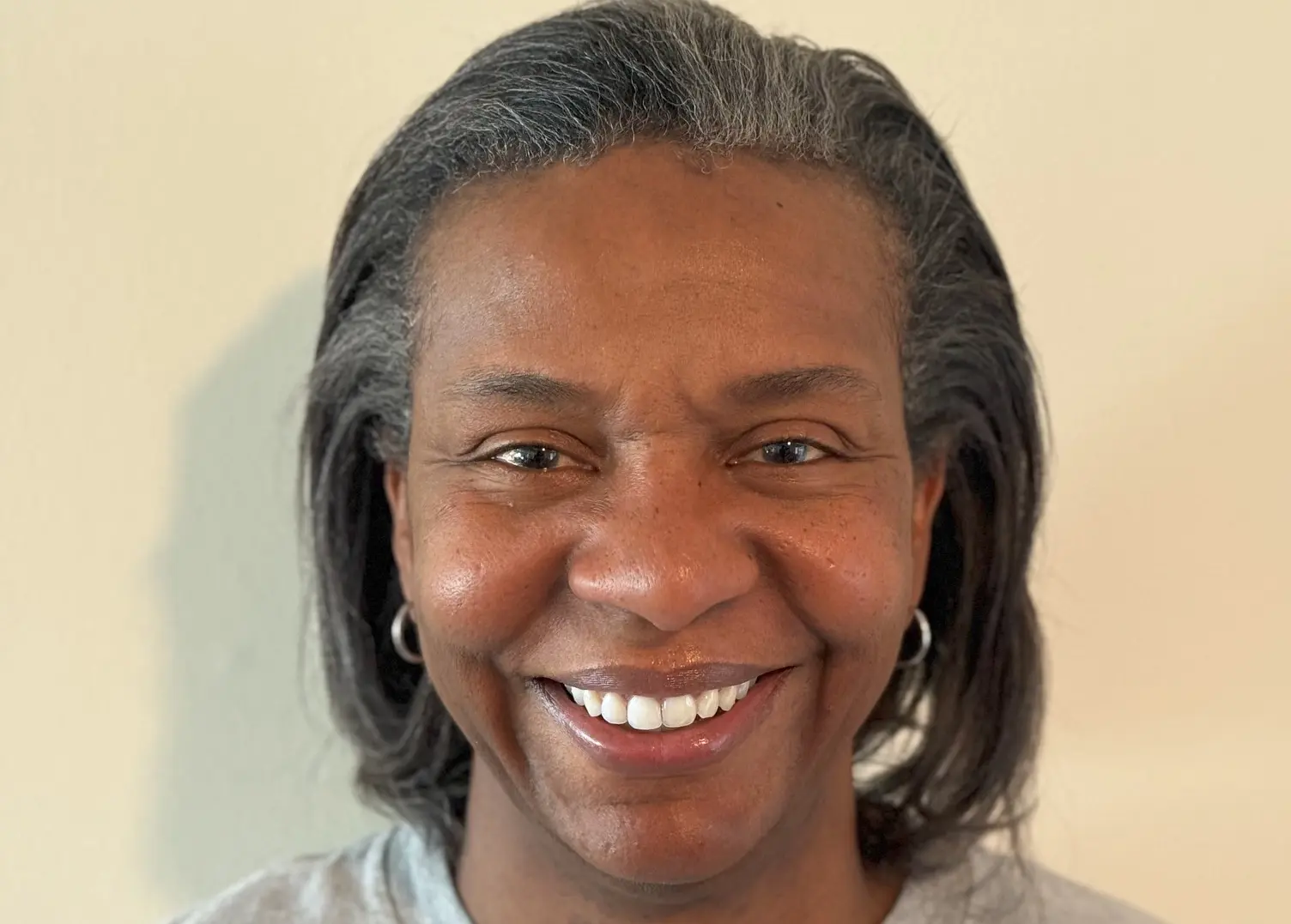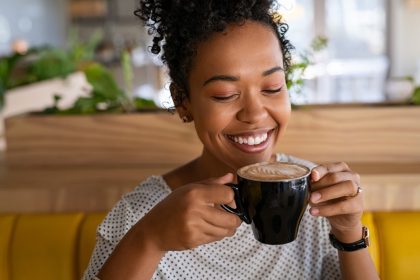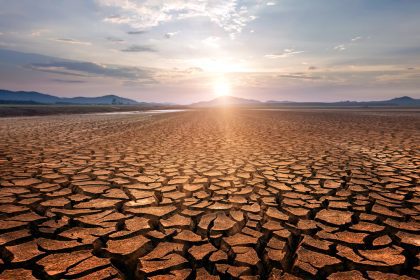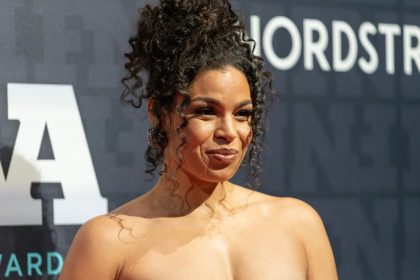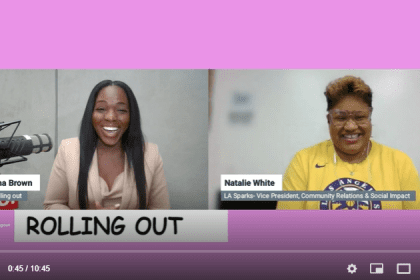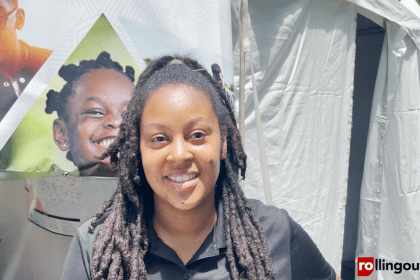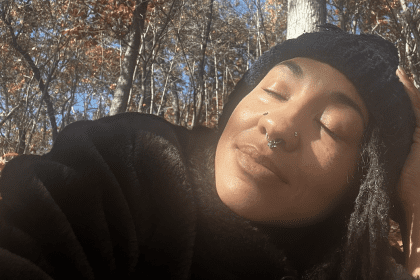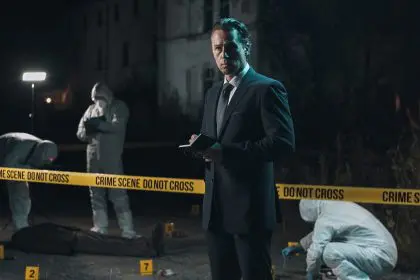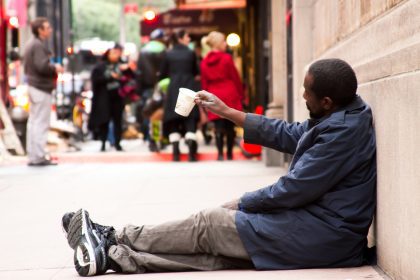Leah Riley is an environmental compliance specialist for Covanta and has been with the company for more than 25 years. She is a major member of the compliance team, managing matters both with the Environmental Protection Agency and with the state of New Jersey. Her position isn’t one in which you often see a Black face, and that’s why it’s important — particularly during Black History Month — to elevate Black leaders who are making a difference in places that we might otherwise overlook such as sustainability.
Riley recently sat down with Munson Steed, the publisher and CEO of rolling out for an engaging conversation about the how we can all work together around environmental and sustainability advancements. Here’s what they had to say:
Munson Steed: Ladies and gentlemen, this is Munson Steed. Welcome to another history making Rolling Out. I am so proud. I have Leah Riley with me today. Hey, Leah, how are you?
Leah Riley: I’m great today. How are you?
MS: I am fantastic. It is a special moment. Obviously, every day is Black History Day, as we all make it. But in the month of February, obviously, we give a little bit more amplification. You know, you’re a history maker. You work at Covanta. Can you share your title and your current role?
LR: My title is environmental compliance specialist. I’ve been at this facility since it opened in 1994. So, I started the first 4 years there working for the county, and then I moved working for Covanta after that in 1998. I’m responsible for the overall compliance with the permits, with the EPA and the New Jersey Department of Environmental Protection, doing all the paperwork with that and the interface with the people in those organizations as well.
MS: Super! So, for those who really are celebrating like you and I, how do you celebrate in your personal life and your professional life during Black History month?
LR: One of the things I try to do is have a conversation. I think, for me, conversations are the best way with people. Because for a lot of people, Black History Month is the only time they think Black History occurs. They get to see something at work, you know, where it comes out or they have an event. So, what I try to do is I’ll wear like conversation attire, one of the things I have on today is, I don’t know if you can see it, says ‘I matter.’ It’s a gentleman who makes that and so what somebody will ask is, “What’s that? What does that mean?” You know, I have other shirts with different people who are important in Black History, and they’ll ask who that is, ’cause I’m really surprised people in my age group who don’t know some of the basics. So, I just try to have conversations with people and try to encourage them to participate in events as well.
MS: So, you know, what new information have you learned about Black History Month then, that you can share today?
LR: Well, you know, one of the things that I’ve learned recently, I started playing golf. And one of the things I did learn [about] is one of the places that I play golf at. It’s a place called Shady Rest Country Club, and it’s maybe about 15 minutes from me. And that was actually the first African American Golf Country Club in the United States. The building is still there. It’s run by the town now, but they still have the history there. So that’s, that’s one of the things that I learned just recently that I was surprised about. And it’s been there, I mean, I’ve lived in this area my entire life, and I never knew that. So that’s one of the things I’ve been looking at that and actually looking into more people who you know, who’s played golf. The Black people who play golf, and I’ve been trying to encourage more people to get involved. ‘Cause it’s a tough sport.
MS: When you think about that, just thinking about sports and rules, you run and participate. Why do you, as a person who is part of the community, encourage and share so much? Why would you wear a shirt to actually ignite additional conversation with a word like “I matter”?
LR: You know this. This shirt was originally made by the artist. Right when the Black Lives Matter movement was going, and then people had the Blue Lives Matter, and you know some people were offended by that. And I was just trying to explain to them that it’s not, you know, one side or the other. It’s all about the individual that matters. So that’s why I kinda wear this. And I have some other ones that say naturally tanned, and because, you know, people don’t understand that and some other ones with a lot of different blacks. It’s a shirt that says “Hero,” and it has a lot of Black people on that that, you know, [who] made an impact in the past. So that’s why. Just so people will know, because a lot of people, I’m very surprised, don’t know what I would call basic Black History.
At Covanta, the ‘community is everything to us’
MS: With what you do at Covanta, can you share a bit about how important the community is, and the role that you play?
LR: The community actually is everything to us. And in my role it’s very important for me as a Black woman in that role because these facilities are in, you know, basically a neighborhood that [has a] large Black community. And when people come into the facility and they see someone that looks like them in charge of the environmental compliance, and you know the paperwork and reporting and stuff. It kinda creates a little bit more of an “Oh! It’s okay! You know. She’s watching out for us” kind of thing and when you go out in the community and explain to them what you do and speak to them. It’s good for them to see someone that they can converse with, and maybe have something in common with out there as well.
MS: You know, when you think about it, who are some of the she-roes and heroes during Black History Month that you really, inspire you to continue to do the work you do in our community?
LR: You know some of the people like, I look at within my family. Lot of my family members are active. I have aunts that are very active in their communities. My mother was very active with things. I have like some sports people I like. I like to look at like Serena Williams. ‘Cause I love the way that she has taken her platform and used it in other manners, and then she’s not afraid to show, you know, a lot of sides of herself, the mother side, her passion. You know, she’s just not afraid. She’s one of the people that I really like to watch and follow. And one of the things I appreciate about social media is, you can watch some of these people on there, and kind of follow them, and what they’re doing in their daily lives.
MS: You know, when you think about sustainability, how important is it for young people to consider this as an occupation and an industry that both Black and Brown people should be involved in?
LR: It’s very important now. The world has changed. It is important to protect the environment long term. And the world has become a throwaway environment. Basically, people are just discarding things, there’s no more TV repairman. If the TV breaks, you throw the TV out. So, if you want to have a voice … It’s similar to what I tell people about voting. If you want to have a voice and what happens then this is an area that’s there. It’s not going anywhere, and it’s only growing as time goes on. So, if you want to, you know, have a voice in where these facilities are placed, how they are managed and how they are run, then this is a great area — because trash isn’t going anywhere. I’ve managed to be here almost 30 years at this facility. So, it’s not going anywhere. It’s a very, very good career in business.
MS: Well, let’s kind of unpack that, because you’ve got a great vision. If you were speaking at a high school or a college, what would be some of the jobs that are available for those who’ve never been inside both a plant that would offer an opportunity or career that we just don’t see unless somebody like you shares with us?
LR: We’ve had some people come into the facility and some of the kids, and I do tell them. I said, nobody ever thinks of this facility as some place they’d like to work. Nobody says they want to work in garbage except my son, when he was a child. He wanted to be a garbage man, but that was another story. But there’s a lot of, there’s actually instrumentation and controls. That’s a very technology-heavy area that you need. You do electric electrical work as well as some programming. There’s the boiler portion of it where you get a license to run a boiler, and you know, you have licenses. So, you can work anywhere from a hospital, in here. And we have guys who have started at the lowest level, you know, and now they’re making $110K, $100K, dollars a year. Because they started from the bottom, learned the facility, and went from there. I mean, my position is an environmental position, which my degree is in engineering, but you know, doesn’t necessarily have to be an engineering. You can do environmental or science or something like that. Just so you understand things like that. So, there’s a lot there. There’s also the finance business accounting. So, it goes with everything. I think it’s a really good business, and I encourage people because it is going to be around for the long term.
MS: I love that, and thanks for sharing those insights. What’s your superpower? ‘Cause you’re a Sister with Superpower. What is your superpower? As you plow through history, you’ve been able to sustain a career in the area of sustainability. But what is your superpower? Obviously, that lights this road for us through your history and the history to come.
LR: I would have to say that it is my ability to develop relationships with different types of people. I’ve always been under the impression that I’m not a big title person. I don’t care what your title is, I can have a conversation with you. I can learn something from you. I tell a lot of young people when they start, I said, the biggest thing you’re gonna need, and whether you’re here anywhere, is relationships with others. I said, you’re not going to know everything but if you know someone that you can call up and say, “Hey, you know can you help me out with this, answer this question?” That’s probably three-quarters of the battle, but then you have to be willing on the other end to help them out when they need it. So, relationships and building relationships and just being exposed to all different types of people and not being intimidated by them, is probably my superpower.
MS: Lastly, you know, we’re talking about Black History Month: Do you have a favorite book that you think about when you think about Black History? A black author, that is, meant something to you that you might review or inspire you as you move through this day, that you can share with the audience?
LR: Actually, I’m not a big reader, but I will say that my favorite book was “The Autobiography of Malcolm X.” Because in that book it actually enlightened me to the fact that someone can start off one way and then change their life and end up in a different manner and be seen in a different manner. Because everyone always wanted to see the bad, the bad, you know, you have the picture, you know, with this, but it gave you a little more insight and understanding. And reading that book, actually, I read it years ago, and it still sticks with me today is one of my favorite, just from the fact that it tells the story of how a man changed his life around, and you know from one thing to another, and not everybody sees that.
MS: Well, ladies and gentlemen, you heard it here. My favorite, the importance of all of us participating in a sustainable, not only environment, but a sustainable culture. Black History is important to you and I want to thank you so much, Leah Riley. You did a phenomenal job sharing the insight. I love your Malcolm X story. I love your approach to, you know, where you start is not where you have to end. We count on you each and every day. I’m Munson Steed, here on rolling out. Happy Black History Month, Leah, and Happy Black History Month to everybody who’s watching. Thank you.
LR: Thank you.

